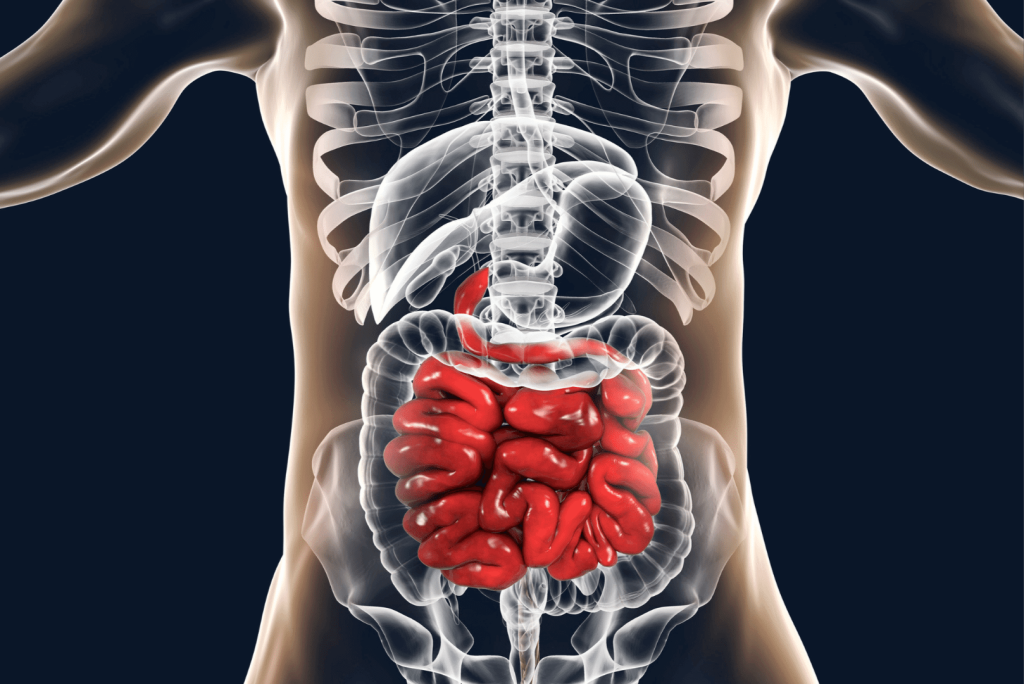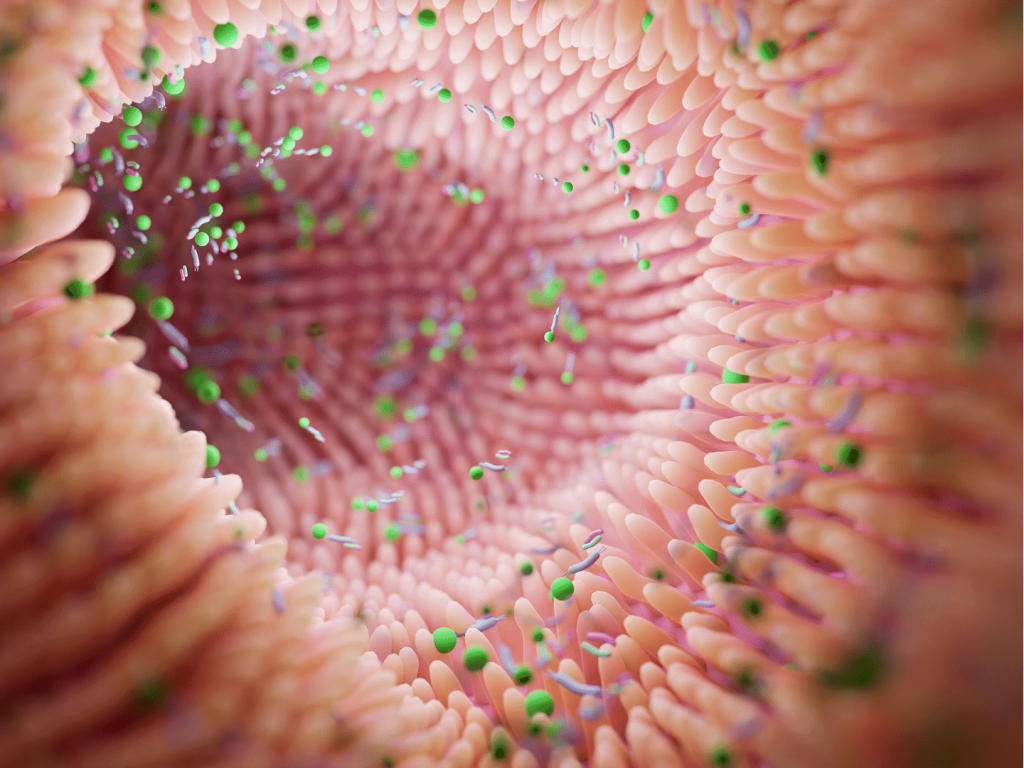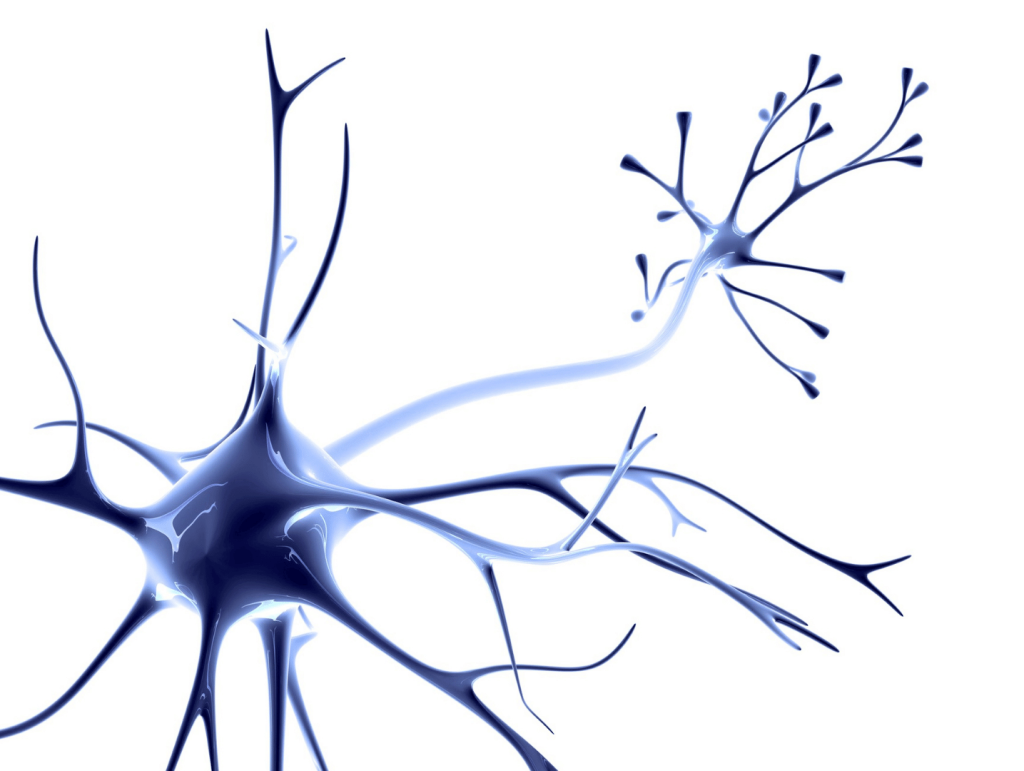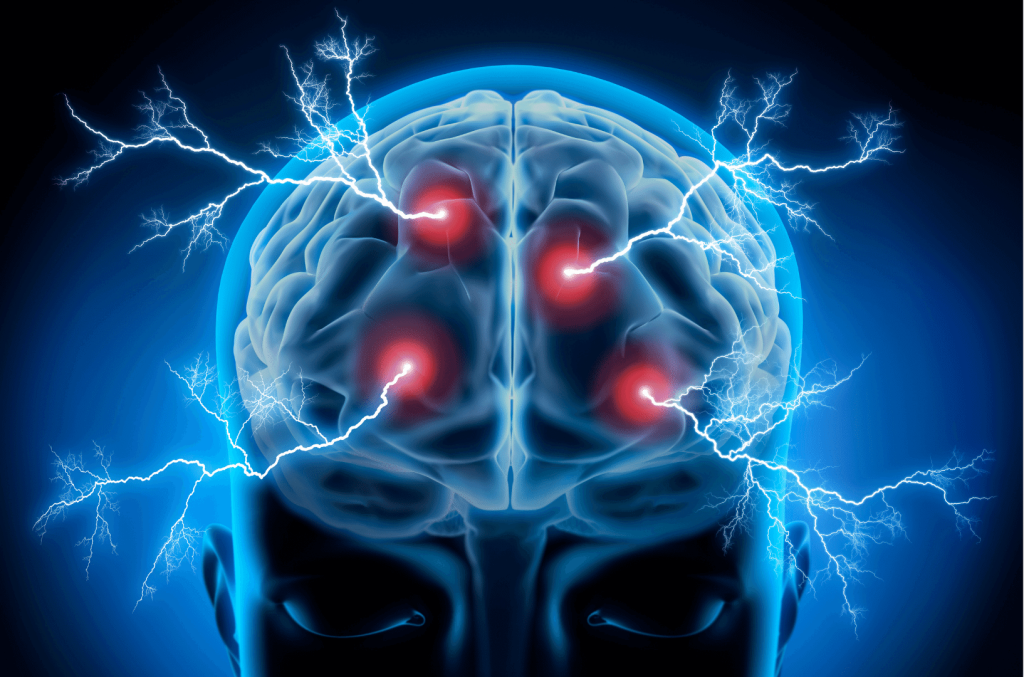
What Is The Gut-Brain-Microbiota Axis?


What Is The Gut-Brain-Microbiota Axis?
Our body has various connections. Every organ, organ system, and tissue is connected somehow. One of those connections is between the brain and gut, also called the gut-brain axis.
The relationship between the brain and the gut is two-way. Your brain can affect your gut health, and vice versa. If you ever felt those butterflies in your stomach before or after a big event, that is because of the relationship between your brain and gut.
There are certain types of bacteria, yeasts, and viruses in your gut, and they are collectively called microbiota. They also play a role in this relationship between the brain and the gut. In this article, you will learn about
- How the gut-brain-microbiota axis works
- Disorders related to this axis
- How supplements and ancient healing traditions work through the gut-brain axis to improve the gut flora and brain functions

What Is The Gut-Brain-Microbiota Axis?
The gut-brain axis refers to the various ways that your gut, brain, and gut microbes are connected, such as:
- Gut microbes produce neurotransmitters or substances that affect brain function
- Gut microbes activate or breakdown neurotransmitters that the brain produces
- Gut microbes communicate with the brain through the vagus nerve
- Your brain and mental state influence the gut microbes through the vagus nerve
- The gut microbes influence the gut lining and whole-body inflammation, which affect the brain
By these means, the bacteria, fungi, and viruses in your gut can influence your mind and behavior. The gut-brain axis also monitors and integrates gut processes while also connecting the brain’s mood and cognitive regions to intestinal functions. It works through immune activation, gut leakiness, and hormonal signaling.
The microbes produce substances from their metabolism that can communicate with your gut, immune, and endocrine cells. Some of these can cross the intestinal barrier into the bloodstream and even the blood-brain barrier.
Neurotransmitters Produced By Gut Microbes
The gut microbes can produce many neurotransmitters that affect the functions of:
- The central nervous system (CNS), including the brain and spinal cord
- The autonomic nervous system (ANS), including your sympathetic and parasympathetic nervous system
- The enteric nervous system (ENS)
- The hypothalamus pituitary adrenal (HPA) axis, your stress response system.
Studies have identified that gut microbes produce serotonin, dopamine, and GABA (an inhibitory neurotransmitter that reduces the firing of neurons through the nervous system). In addition, BiOptimizers’ research and development lab detected acetylcholine and histamine production in some probiotic strains.
As you may know, neurotransmitters influence your feelings, emotions, motivations, and brain functions. Neurotransmitters produced in the gut may not work the same way as those produced in your brain. However, this is one of the ways your gut microbes control your mind.
90% of serotonin production occurs in the gut both from the enterochromaffin cells and gut bacteria, and some of these influence brain serotonin levels. For example, gut microbes produce a certain amount of serotonin. They also boost colon and blood serotonin levels, mostly through stimulating the serotonin-producing cells in your gut.
In addition, gut microbes produce the GABA neurotransmitter, the calming and relaxing neurotransmitter. Gut bacteria produce GABA in the gut.
Most people benefit from eating foods with GABA supplements, such as promoting a calm state and/or better sleep.
Additionally, at least five distinct studies note the benefits of oral administration of GABA or GABA-supplemented meals or beverages (equivalent GABA doses of roughly 50-100 mg) to human health. These outcomes include.:
- A decrease in psychological stress in math task-takers
- A decrease in stress in subjects who are afraid of heights
- An improved capacity for performing prioritized, planned actions
Since probiotic bacteria produce GABA, it is no wonder that taking probiotics can improve levels of GABA and deliver similar health benefits.

Other Microbial Substances That Can Influence Brain Functions
Aside from neurotransmitters, your gut microbes also make other chemicals that can affect the brain and its functions. One of those chemicals is short-chain fatty acids.
Short-chain fatty acids are the main source of nutrition for the cells found in the gut. Examples of short-chain fatty acids include acetate, butyrate, and propionate. Sometimes, we refer to them as postbiotics.
Postbiotics are waste products that your gut bacteria produce as they break down prebiotics or other substances in your gut. In addition, antimicrobial peptides and some metabolites inhibit the growth of dangerous bacteria.
Furthermore, when your gut microbes metabolize bile acids and amino acids, they may also create molecules that impact your brain.
Gut Microbes Activate Or Breakdown Neurotransmitters That You Produce
You may have heard of neurotransmitters such as serotonin and catecholamines regulating your mood, mental processes, and other homeostasis in your body. For example, they control blood flow throughout the body, send messages across chemical synapses and contribute to the “fight or flight” response. However, recent studies have shown that these neurotransmitters can majorly impact your gut.
Dopamine, norepinephrine, serotonin, and GABA are under major research regarding the gut-brain axis.
Dopamine is a neurotransmitter related to reward-like behavior. It is also a precursor for epinephrine and norepinephrine. Norepinephrine is a neurotransmitter linked to arousal and alertness, with new findings suggesting that it also acts in cognition, memory, attention, and learning.
Your gut bacteria produce dopamine and norepinephrine. These two neurotransmitters produced by bacteria play a role in many catabolic processes in the body.
On the other hand, serotonin regulates a wide range of physiological functions, such as gut secretion and movement, breathing, behavior, and neurological function.
Although some bacteria produce serotonin, the gut microbiota cannot. Instead, your gut bacteria produce tiny molecules that tell the enterochromaffin cells to produce more serotonin. These molecules may include short-chain fatty acids or secondary bile acids.
Furthermore, you have GABA receptors throughout your body.
Low or abnormal GABAs contribute to CNS disorders such as behavioral issues, pain, and sleep disorders. Abnormal GABA can disrupt movement, stomach emptying, gut movement, pain sensation, and stomach acid secretion. However, contrary to the other neurotransmitters, they produce GABA as part of their glutamate metabolism. This helps the bacteria survive in acidic environments.
Gut Microbes Communicate With The Brain Through The Vagus Nerve

Your brain has billions of neurons. Your neurons also bridge the communication between the nervous system, and external environment. Your gut also has millions of neurons, which are also connected to your brain via the vagus nerves.
The brain sends signals to the gut via this nerve and vice versa.
Now, if you are stressed, this stress can inhibit the signals sent through the vagus nerve, thus causing digestive issues and possibly dysbiosis.
Individuals with irritable bowel syndrome (IBS) or Crohn’s disease (CD) have reduced vagus nerve function. One study included 73 participants divided into three groups – the healthy control group, the IBS group, and the CD group. Three significant findings from the study highlight the close association between vagal tone and indicators of stress regulation and inflammation in CD and IBS patients:
- In healthy subjects, not in CD and IBS patients, a high morning vagal tone is associated with a low evening cortisol level. Therefore, the relationship between vagal tone and evening cortisol levels seems uncoupled in those patients.
- Inflammatory molecule levels in the plasma negatively correlate with vagal tone in CD patients, indicating that CD patients with a low vagal tone may have a blunted anti-inflammatory pathway.
- High plasma levels of epinephrine are a sign of unadapted high sympathetic activity in IBS patients with low vagal tone.
This implies that the vagus nerve plays a crucial part in the gut-brain axis. Also, your vagal tone determines how bad stress can affect your health.
Conversely, the vagus nerve can sense the metabolites produced by gut microbes through its branch toward the brain. The branch then transmits this information to the brain. Your brain then integrates the signal and determines which response to produce.
The Brain And Mental State Influence The Gut Microbes Through The Vagus Nerve
We saw that the gut communicates with the brain via the vagus nerve. So now, let’s look at how the brain and mental state influence gut microbes via the same nerve, the vagus nerve.
Once the vagus nerve is activated, it transmits this signal to macrophages in the gut. These macrophages connect to the gastric neurons and release their anti-inflammatory properties in the gut.
This anti-inflammatory and pro-inflammatory ability can even modify intestinal permeability and gut microbes.

The Gut Microbes Influence The Gut Lining And Whole-Body Inflammation, Which Affect The Brain
The gut-brain axis can also affect the gut lining by modifying intestinal permeability. Furthermore, it is also connected with our immune system.
By regulating what is ingested and expelled, our gut and gut microbes significantly influence our immune system and inflammation. In addition, their metabolites and cellular components also interact closely with the immune system.
Gram-negative bacteria produce the inflammatory toxin lipopolysaccharide (LPS) in their cell walls. A very high dose of LPS in the blood can cause sepsis. Lower doses that are not life-threatening, however, can cause chronic low-grade inflammation. This can occur when the intestinal barrier weakens, allowing germs and LPS to enter the bloodstream. In addition, numerous brain illnesses, such as severe depression, dementia, and schizophrenia, tend to come with inflammation and high blood levels of LPS.
When your immune system is overactive, it can cause inflammation, which can affect the brain and thus cause depression and Alzheimer’s disease. The inflammation may also present as other health issues, such as obesity, insulin resistance, joint pain, etc., depending on the weak link in your body.
Examples Of Gut-Brain-Microbiota Disorders:
As mentioned, a two-way communication network connecting the intestinal and central nervous systems is known as the gut-brain axis. This network includes anatomical communication pathways through hormonal, bodily fluid, metabolic, and immunological ones.
Since this complex network connects intricately to other systems, it is no surprise that gut-brain-microbiota disorders exist. Usually, they go along with stress, which we will cover later on.
Some common gut-brain-microbiota disorders are:
- The gut feeling (feeling anxiety and/or fear as a sensation in the gut)
- IBS or other digestive issues in people with depression and anxiety
- Acid reflux or IBS connected with stress
The Gut Feeling (How You Can Feel Fear Or Anxiety As A Sensation In The Gut)
The gut feeling, sometimes called the gut-brain axis anxiety, is that feeling when you meet someone new or are put into an unknown stressful situation. Sometimes, you can sense danger even though your rational mind is completely unaware. Hence, why “trust your gut instinct” or “gut feeling” isn’t just a metaphor but an actual connection between the brain and the gastrointestinal tract.
A large network of neurons and a highway of chemicals and hormones connect our brain and gut, providing regular data about our hunger levels, stress levels, and the presence of disease-causing microbes.
The sinking sensation you get after seeing your post-holiday credit card bill illustrates how the brain and gut function together. Your gut instinct tells you something is wrong right away.

Many People With Depression And Anxiety Also Have IBS Or Other Digestive Issues
However, this does not suggest that depression and anxiety cause IBS or other gut issues. It is just that, in most cases, they go hand in hand and feed into each other.
About 11% of the global population have IBS, whereas the 20 – 25% have anxiety or depression.
Around 27% of individuals with depression and anxiety also have IBS. While 84% of individuals with IBS also have depression, and 44% of individuals with IBS also have anxiety. This means when you have a mental health disorder, you’re much more likely to have a gut disorder, and vice versa.
Irritable bowel syndrome (IBS) and functional bowel disorders, including constipation, diarrhea, bloating, pain, and stomach distress, can cause significant emotional changes.
IBS links strongly to psychological elements in both its maintenance and cause. Therefore, researchers conducted a study to assess the prevalence of anxiety and depression in IBS patients compared to healthy controls and the possibility of a link between these conditions and different subtypes of the condition.
Using the Hamilton Rating Scale for Anxiety (HAMA) and Hamilton Rating Scale for Depression, an evaluation of 50 IBS patients and 50 healthy controls occurred for the presence of anxiety and depression (HAMD).
The IBS group scored higher on HAMA and HAMD scales than control patients, meaning that people with anxiety and depression may experience IBS.
Stress Can Cause Digestive Disorders Like Acid Reflux, Constipation, Or Diarrhea
Most of us are familiar with daily stress, such as work, running errands, and having too much to do, yet not enough time. This type of stress can cause an unsettling feeling in our gut– another example of how our emotions and gut are connected.
According to numerous studies, stressful life events can set off or worsen digestive problems and diseases. These conditions may include inflammatory bowel disease (IBD), irritable bowel syndrome (IBS), gastroesophageal reflux disease (GERD), and stomach ulcer.
Depending on your tendency, stress can move things along the gut or slow things down to a halt. On the other hand, stress can speed up fluid and motility secretion in the gut. This is why, when experiencing a stressful event or right afterward, you may experience a case of diarrhea or persistent urination demands.
Worse situations of stress and nervousness may cause vomiting. In some cases, stress can slow down the stomach’s ability to empty its contents and hasten the passage of food through the intestines, contributing to bloating, indigestion, and constipation.
In addition to affecting bowel movements, this mix of activities causes abdominal pain. Also, when you’re stressed, your pain tolerance may be lower, so you feel worse stomach pain.
Gut-Brain-Microbiota Supplements And Food
Gut-brain axis supplements and food may improve both the brain and digestion by working through the gut-brain axis. They feed both the gut flora and the brain. Some of them are:
- Omega-3
- Probiotics and synbiotics
- Fibers and polyphenols
In addition to gut-brain-microbiota supplements, many traditional herbs improve brain and mental health by improving the microbiota.
Omega-3
Omega-3 supplements are supplements rich in omega-3 fatty acids. Naturally, omega-3 is present in everything, but oily fish, seafood, algae, and single-celled plankton are the best sources for your brain.
Furthermore, bovines like beef and goat are also decent sources of omega-3 if they’re grass-fed. Omega-3 is responsible for many processes in the human body. Some of them are:
- Cellular functions such as signaling, cell membrane fluidity, and structural maintenance
- Regulating the nervous system
- Regulating blood pressure and blood clotting
- Regulating glucose tolerance
- Involved in inflammatory processes
Omega-3s can enhance healthy bacteria in the stomach and lower the risk of brain diseases, according to studies in both humans and animals.
Omega-3 fatty acids may improve the gut flora, affecting human physiological characteristics. Researchers wanted to find a link between omega-3 fatty acids and gut microbiome diversity.
They studied 876 female twins with a microbiome 16S type and analyzed their omega-3 serum levels and intake, microbiome composition, and diversity. Researchers concluded that higher levels of omega-3 indicated higher microbiome diversity, which is great for your overall health.

Probiotics/Synbiotics
Probiotics are living microorganisms that deliver health benefits. Some of them also help improve the gut microbiota. Probiotics are living microorganisms that deliver health benefits. Whether they colonize or not, many probiotics influence the gut microbiota. Probiotics affect the gut-brain axis.
Research indicates that patients with anxiety disorders and depressive disorders have altered gut microbiota and vagal tone.
Some probiotics, like Bifidobacterium, use vagal pathways to communicate with the brain. However, once the vagus nerve was experimentally cut, these probiotics no longer deliver the same benefits to the brain and behavior.
Fibers And Polyphenols
Prebiotics or prebiotics with probiotics (synbiotics) can improve your gut flora. For example, fibers and polyphenols increase the diversity of gut bacteria and, in turn, influence cognition.
Fibers can enhance microbial diversity, which is considered a “healthy” trait of gut flora.
Furthermore, a diet full of fibers increases the number of beneficial bacteria in the gut, such as bifidobacteria and lactobacilli.
Polyphenols are plant compounds broken down by the bacteria in your stomach and are present in foods like cocoa, green tea, coffee, and olive oil. Polyphenols boost beneficial gut flora and may enhance brain function.
Many Traditional Herbs Improve Brain And Mental Health By Improving The Microbiota
A traditional Chinese herbal remedy called Chaihu Shugan Formula (CSF) contains a number of medicinal plants from China, including:
- Bupleurum Chinese DC
- Pericarpium citri reticulatae
- Ligusticum chuanxiong Hort
- Rhizoma cyperi
- Fructus aurantii
- Radix paeoniae alba
- And Glycyrrhiza uralensis Fisch
For more than 500 years, Chinese medicine practitioners have successfully used this formula for digestive problems and mood issues. In addition, CSF has beneficial effects on mood and related disorders and other illnesses, such as stress-related liver damage and cognitive dysfunction.
In animal studies, CSF could balance inflammation in various organs, including the liver, gut, and brain. In addition, researchers discovered that CSF might influence different signaling pathways while studying the molecular mechanism underlying the therapeutic effects of CSF in illnesses.
Interestingly, CSF works by improving the gut microbial composition. A study tested the effect of CSF in a stimulated human gut flora condition. After 48 hours of CSF therapy, the CSF treatment caused a more than two-fold increase in short-chain fatty acids compared to the control group. In addition, CSF enriched the microbiota with Actinobacteria, Bacteroidetes, and Firmicutes .
In a study on mice, scientists investigated the effect of stress and antibiotics before and after CFS treatment. In the stressed group, the mice treated with CFS showed improvement in depressive-like symptoms compared to the control group. However, in mice treated with antibiotics, the mood-boosting benefits of CFS disappeared.
This study showed that when the gut flora was wiped out with antibiotics, CFS ceased to be effective. Therefore CFS boosted mood mainly by changing the gut flora.
Our Cognibiotics is a breakthrough gut-brain axis supplement that contains the Chaihu Shugan San formula and synbiotics. Our Cognibiotics may:
- Improve brain health, mental clarity, learning, memory, and focus by enhancing the gut bacteria
- Help with brain fog and procrastination
- Promote balanced stress response
- Protect the brain from oxidative stress
- Support digestive health and regulation
- Improve the balance of neurotransmitters including acetylcholine, serotonin, GABA, and dopamine in the brain
Bottom Line
Everything in our body is connected. So it is no wonder a connection between our brain and gut exists. We refer to this connection as the gut-brain axis. This axis means that bacteria in our gut can influence our mood, and our mood can influence the diversity of our gut bacteria.
Gut dysbiosis can make you feel down, have low motivation, or be anxious.
On the other hand, if you are under a lot of stress, this can decrease the number of healthy bacteria in your gut, thus leading to some digestive issues.
However, supplements and food rich in fibers, polyphenols, probiotics, synbiotics, and prebiotics may improve your brain and gut health. For example, our Cognibiotics contain the Chaihu Shugan San formula and mood-boosting synbiotics, which enhance brain and mental health through improving the gut flora.
References
- Faraj J, Takanti V, Tavakoli HR. The gut-brain axis: Literature overview and psychiatric applications. Fed Pract. 2021;38(8):356-362. doi:10.12788/fp.0159
- Cryan JF, O’Riordan KJ, Cowan CSM, et al. The Microbiota-gut-brain axis. Physiol Rev. 2019;99(4):1877-2013. doi:10.1152/physrev.00018.2018
- Carabotti M, Scirocco A, Maselli MA, Severi C. The gut-brain axis: interactions between enteric microbiota, central and enteric nervous systems. Ann Gastroenterol. 2015;28(2):203-209.
- Osadchiy V, Martin CR, Mayer EA. The gut-brain axis and the microbiome: Mechanisms and clinical implications. Clin Gastroenterol Hepatol. 2019;17(2):322-332. doi:10.1016/j.cgh.2018.10.002
- Mazzoli R, Pessione E. The neuro-endocrinological role of microbial glutamate and GABA signaling. Front Microbiol. 2016;7:1934. doi:10.3389/fmicb.2016.01934
- Yano JM, Yu K, Donaldson GP, et al. Indigenous bacteria from the gut microbiota regulate host serotonin biosynthesis. Cell. 2015;161(2):264-276. doi:10.1016/j.cell.2015.02.047
- Boonstra E, de Kleijn R, Colzato LS, Alkemade A, Forstmann BU, Nieuwenhuis S. Neurotransmitters as food supplements: the effects of GABA on brain and behavior. Front Psychol. 2015;6:1520. doi:10.3389/fpsyg.2015.01520
- Nakamura H, Takishima T, Kometani T, Yokogoshi H. Psychological stress-reducing effect of chocolate enriched with gamma-aminobutyric acid (GABA) in humans: assessment of stress using heart rate variability and salivary chromogranin A. Int J Food Sci Nutr. 2009;60 Suppl 5(sup5):106-113. doi:10.1080/09637480802558508
- Kanehira T, Nakamura Y, Nakamura K, et al. Relieving occupational fatigue by consumption of a beverage containing γ-amino butyric acid. J Nutr Sci Vitaminol (Tokyo). 2011;57(1):9-15. doi:10.3177/jnsv.57.9
- Yoto A, Murao S, Motoki M, et al. Oral intake of γ-aminobutyric acid affects mood and activities of central nervous system during stressed condition induced by mental tasks. Amino Acids. 2012;43(3):1331-1337. doi:10.1007/s00726-011-1206-6
- Abdou AM, Higashiguchi S, Horie K, Kim M, Hatta H, Yokogoshi H. Relaxation and immunity enhancement effects of gamma-aminobutyric acid (GABA) administration in humans. Biofactors. 2006;26(3):201-208. doi:10.1002/biof.5520260305
- Steenbergen L, Sellaro R, Stock AK, Beste C, Colzato LS. γ-Aminobutyric acid (GABA) administration improves action selection processes: a randomised controlled trial. Sci Rep. 2015;5(1):12770. doi:10.1038/srep12770
- Janik R, Thomason LAM, Stanisz AM, Forsythe P, Bienenstock J, Stanisz GJ. Magnetic resonance spectroscopy reveals oral Lactobacillus promotion of increases in brain GABA, N-acetyl aspartate and glutamate. Neuroimage. 2016;125:988-995. doi:10.1016/j.neuroimage.2015.11.018
- Silva YP, Bernardi A, Frozza RL. The role of short-chain fatty acids from gut Microbiota in gut-brain communication. Front Endocrinol (Lausanne). 2020;11:25. doi:10.3389/fendo.2020.00025
- Golen T, Ricciotti H. What are postbiotics? Harvard Health. Published November 1, 2021. Accessed October 5, 2022. https://www.health.harvard.edu/nutrition/what-are-postbiotics
- Clarke G, Stilling RM, Kennedy PJ, Stanton C, Cryan JF, Dinan TG. Minireview: Gut microbiota: the neglected endocrine organ. Mol Endocrinol. 2014;28(8):1221-1238. doi:10.1210/me.2014-1108
- Mittal R, Debs LH, Patel AP, et al. Neurotransmitters: The critical modulators regulating gut-brain axis. J Cell Physiol. 2017;232(9):2359-2372. doi:10.1002/jcp.25518
- Borodovitsyna O, Flamini M, Chandler D. Noradrenergic modulation of cognition in health and disease. Neural Plast. 2017;2017:1-14. doi:10.1155/2017/6031478
- Strandwitz P. Neurotransmitter modulation by the gut microbiota. Brain Res. 2018;1693(Pt B):128-133. doi:10.1016/j.brainres.2018.03.015
- Berger M, Gray JA, Roth BL. The expanded biology of serotonin. Annu Rev Med. 2009;60(1):355-366. doi:10.1146/annurev.med.60.042307.110802
- Herculano-Houzel S. The human brain in numbers: a linearly scaled-up primate brain. Front Hum Neurosci. 2009;3:31. doi:10.3389/neuro.09.031.2009
- Mayer EA. Gut feelings: the emerging biology of gut-brain communication. Nat Rev Neurosci. 2011;12(8):453-466. doi:10.1038/nrn3071
- Breit S, Kupferberg A, Rogler G, Hasler G. Vagus nerve as modulator of the brain–gut axis in psychiatric and inflammatory disorders. Front Psychiatry. 2018;9. doi:10.3389/fpsyt.2018.00044
- Bonaz B, Bazin T, Pellissier S. The vagus nerve at the interface of the Microbiota-gut-brain axis. Front Neurosci. 2018;12:49. doi:10.3389/fnins.2018.00049
- Pellissier S, Dantzer C, Mondillon L, et al. Relationship between vagal tone, cortisol, TNF-alpha, epinephrine and negative affects in Crohn’s disease and irritable bowel syndrome. PLoS One. 2014;9(9):e105328. doi:10.1371/journal.pone.0105328
- Rooks MG, Garrett WS. Gut microbiota, metabolites and host immunity. Nat Rev Immunol. 2016;16(6):341-352. doi:10.1038/nri.2016.42
- Kelly JR, Kennedy PJ, Cryan JF, Dinan TG, Clarke G, Hyland NP. Breaking down the barriers: the gut microbiome, intestinal permeability and stress-related psychiatric disorders. Front Cell Neurosci. 2015;9:392. doi:10.3389/fncel.2015.00392
- Lucas SM, Rothwell NJ, Gibson RM. The role of inflammation in CNS injury and disease: The role of inflammation in CNS. Br J Pharmacol. 2006;147 Suppl 1(S1):S232-40. doi:10.1038/sj.bjp.0706400
- Appleton J. The gut-brain axis: Influence of Microbiota on mood and mental health. Integr Med (Encinitas). 2018;17(4):28-32.
- Dhaliwal G. Going with your gut. J Gen Intern Med. 2011;26(2):107-109. doi:10.1007/s11606-010-1578-4
- Canavan C, West J, Card T. The epidemiology of irritable bowel syndrome. Clin Epidemiol. 2014;6:71-80. doi:10.2147/CLEP.S40245
- Racine N, McArthur BA, Cooke JE, Eirich R, Zhu J, Madigan S. Global prevalence of depressive and anxiety symptoms in children and adolescents during COVID-19: A meta-analysis: A meta-analysis. JAMA Pediatr. 2021;175(11):1142-1150. doi:10.1001/jamapediatrics.2021.2482
- Banerjee A, Sarkhel S, Sarkar R, Dhali GK. Anxiety and depression in irritable bowel syndrome. Indian J Psychol Med. 2017;39(6):741-745. doi:10.4103/ijpsym.ijpsym_46_17
- Mudyanadzo TA, Hauzaree C, Yerokhina O, Architha NN, Ashqar HM. Irritable bowel syndrome and depression: A shared pathogenesis. Cureus. 2018;10(8):e3178. doi:10.7759/cureus.3178
- Mayer EA. The neurobiology of stress and gastrointestinal disease. Gut. 2000;47(6):861-869. doi:10.1136/gut.47.6.861
- Mawdsley JE, Rampton DS. Psychological stress in IBD: new insights into pathogenic and therapeutic implications. Gut. 2005;54(10):1481-1491. doi:10.1136/gut.2005.064261
- Gammone MA, Riccioni G, Parrinello G, D’Orazio N. Omega-3 polyunsaturated fatty acids: Benefits and endpoints in sport. Nutrients. 2018;11(1):46. doi:10.3390/nu11010046
- Menni C, Zierer J, Pallister T, et al. Omega-3 fatty acids correlate with gut microbiome diversity and production of N-carbamylglutamate in middle aged and elderly women. Sci Rep. 2017;7(1):11079. doi:10.1038/s41598-017-10382-2
- Mörkl S, Butler MI, Holl A, Cryan JF, Dinan TG. Probiotics and the Microbiota-gut-brain axis: Focus on psychiatry. Curr Nutr Rep. 2020;9(3):171-182. doi:10.1007/s13668-020-00313-5
- McBurney MI, Davis C, Fraser CM, et al. Establishing what constitutes a healthy human gut microbiome: State of the science, regulatory considerations, and future directions. J Nutr. 2019;149(11):1882-1895. doi:10.1093/jn/nxz154
- Berding K, Carbia C, Cryan JF. Going with the grain: Fiber, cognition, and the microbiota-gut-brain-axis. Exp Biol Med (Maywood). 2021;246(7):796-811. doi:10.1177/1535370221995785
- Hayek N. Chocolate, gut microbiota, and human health. Front Pharmacol. 2013;4:11. doi:10.3389/fphar.2013.00011
- Brickman AM, Khan UA, Provenzano FA, et al. Enhancing dentate gyrus function with dietary flavanols improves cognition in older adults. Nat Neurosci. 2014;17(12):1798-1803. doi:10.1038/nn.3850
- Kim SH, Han J, Seog DH, et al. Antidepressant effect of Chaihu-Shugan-San extract and its constituents in rat models of depression. Life Sci. 2005;76(11):1297-1306. doi:10.1016/j.lfs.2004.10.022
- Wang Y, Fan R, Huang X. Meta-analysis of the clinical effectiveness of traditional Chinese medicine formula Chaihu-Shugan-San in depression. J Ethnopharmacol. 2012;141(2):571-577. doi:10.1016/j.jep.2011.08.079
- Fan DH, Cao MQ, Liu Q, Sun NN, Wu ZZ. Chaihu-Shugan-San exerts an antidepressive effect by downregulating miR-124 and releasing inhibition of the MAPK14 and Gria3 signaling pathways. Neural Regen Res. 2018;13(5):837. doi:10.4103/1673-5374.232478
- Liu L, Lu Y, Xu C, et al. The modulation of Chaihu Shugan Formula on Microbiota composition in the simulator of the human intestinal microbial ecosystem technology platform and its influence on gut barrier and intestinal immunity in Caco-2/THP1-BlueTM cell co-culture model. Front Pharmacol. 2022;13:820543. doi:10.3389/fphar.2022.820543
- Yu M, Jia HM, Zhang T, et al. Gut Microbiota is the Key to the Antidepressant Effect of Chaihu-Shu-Gan-San. Metabolites. 2020;10(2):63. doi:10.3390/metabo10020063
4 Comments
Leave a Comment
You must be logged in to post a comment.

Appreciate it for this post, I am a big fan of this internet site would like to continue updated.
Appreciate it for this terrific post, I am glad I detected this internet site on yahoo.
you have brought up a very superb points, appreciate it for the post.
You are welcome!